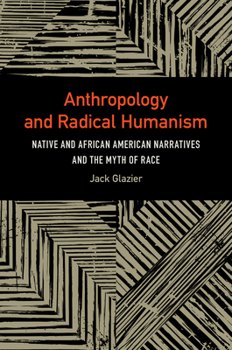Anthropology and Radical Humanism: Native and African American Narratives and the Myth of Race
Paul Radin, famed ethnographer of the Winnebago, joined Fisk University in the late 1920s. During his three-year appointment, he and graduate student Andrew Polk Watson collected autobiographies and religious conversion narratives from elderly African Americans. Their texts represent the first systematic record of slavery as told by former slaves. That innovative, subject-centered research complemented like-minded scholarship by African American historians reacting against the disparaging portrayals of black people by white historians. Radin's manuscript focusing on this research was never published. Utilizing the Fisk archives, the unpublished manuscript, and other archival and published sources, Anthropology and Radical Humanism revisits the Radin-Watson collection and allied research at Fisk. Radin regarded each narrative as the unimpeachable self-representation of a unique, thoughtful individual, precisely the perspective marking his earlier Winnebago work. As a radical humanist within Boasian anthropology, Radin was an outspoken critic of racial explanations of human affairs that pervaded not only popular thinking but also historical and sociological scholarship. His research among African Americans and Native Americans thus places him in the vanguard of the anti-racist scholarship marking American anthropology. Anthropology and Radical Humanism sets Paul Radin's findings within the broader context of his discipline, African American culture, and his career-defining work among the Winnebago.
Format:Hardcover
Language:English
ISBN:1611863503
ISBN13:9781611863505
Release Date:March 2020
Publisher:Michigan State University Press
Length:258 Pages
Weight:1.10 lbs.
Dimensions:0.8" x 6.2" x 9.1"
Customer Reviews
0 rating





